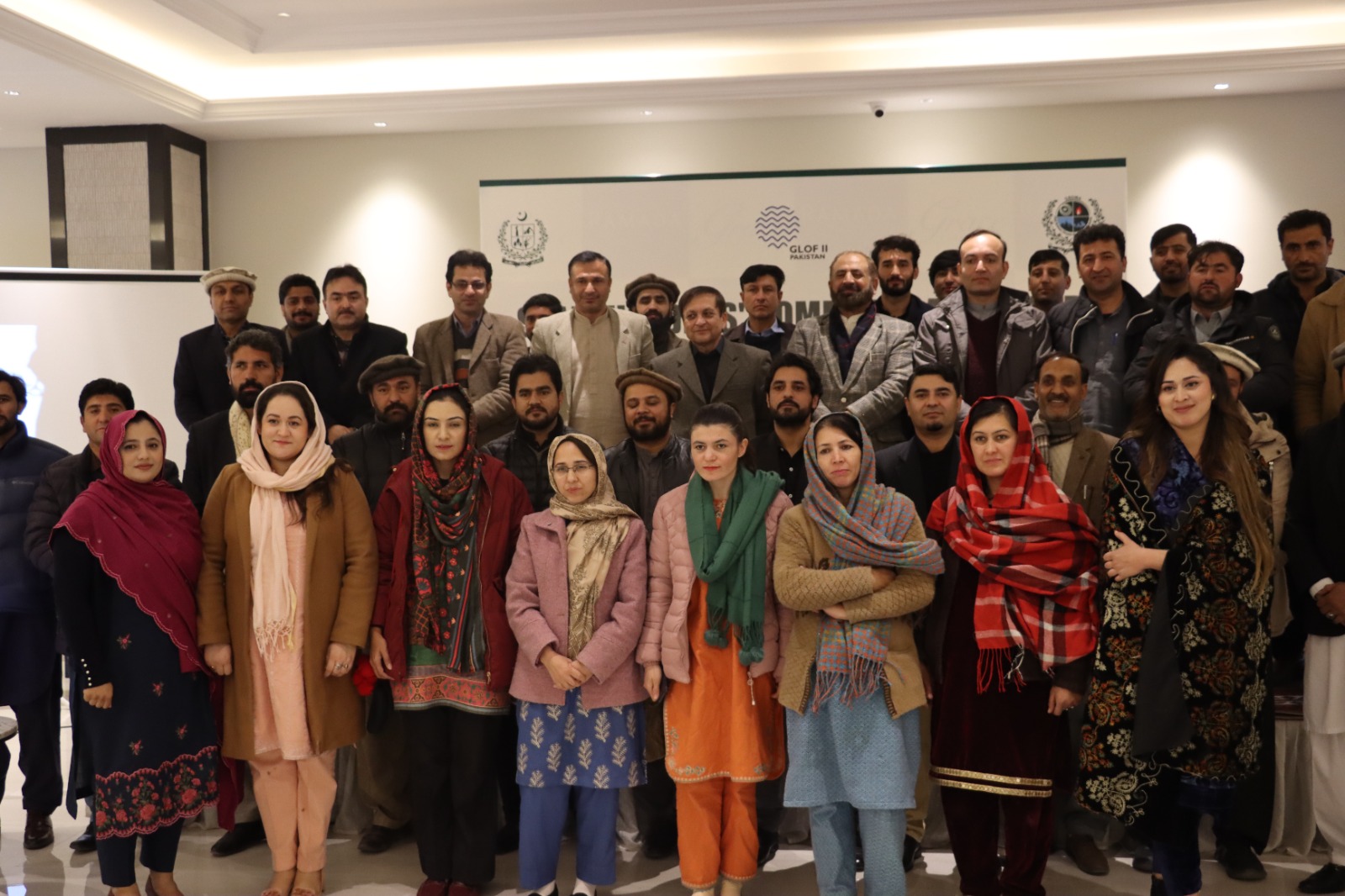By: Ashiq Hussain, M Phil Scholar
Geographically, a piece of land accrues importance due to its strategic location, availability of resources or proximal significance. Although, Gilgit Baltistan (GB) is a mountain locked region, it has an enormous strategic importance, both in terms of its proximal location with some great ancient powers and endowed with abundant natural resources. Above all, situated between the Hindu Kush and Karakoram Range of mountains in the north and western Himalayas in the south, the geo-strategic placement of Gilgit-Baltistan makes it even more significant for Pakistan. The region borders Pakistan’s Dir, Swat, Kohistan and Kaghan districts of Khyber Pakhtunkhwa in the West, the Wakhan Corridor of Afghanistan in its northwest, Xinjiang Province of China to its east and northeast, Azad Jammu and Kashmir under control of Pakistan to the southwest, and a 480 km-long Line of Control (LOC) running alongside India in the southeast. It is no exaggeration to say that the strategic importance of Pakistan is directly proportional to the importance of Gilgit Baltistan. In other terms, Gilgit Baltistan portrays Pakistan as a vital geo-strategic country in the region. Its geo-political importance was evident during the British era when the Gilgit Agency was a vital arena in the Great Game politics between Britain and Russia. Today, it is still an important strategic link between Pakistan and China and the Muslim countries of Central Asia. Although, the constitutional history of Gilgit Baltistan is full of contradictions and controversies, it still maintains its role to a certain degree which makes Pakistan one of the most strategically important countries in the region. Geopolitically, Gilgit-Baltistan is located at the junction of China, Central -South Asia, and the ancient silk route, famous for trade in Central Asia crossed through this region. It has been strategically instrumental as the one and only transit route, which brings forth adjoining and bordering states of Afghanistan, China, Azad Kashmir and Jammu Kashmir respectively. Since 69 years after independence Gilgit Baltistan is facing a constitutional dilemma with no representation in upper and lower House of Representatives of Pakistan. The constitutional status of this region is still undefined as according to the UN Resolution of 1948, the fate of this area will be decided by the plebiscite to be held in future. For this reason, Pakistan has kept the region under its direct control and treats it as a colony, with absolute autocracy and no fundamental, civil or political rights provided to them in a modern world of democratic politics. No accession deal was ever signed by the people of GB with Pakistan Government. In fact, Pakistan, in collaboration with some Kashmiri leaders, in its Karachi Pact of April 28, 1951, admitted that GB is part of Jammu and Kashmir which ignited restless and resentment in the region. On the other hand, the rest of the non-provincial units of Pakistan like the federal capital and federally administered tribal areas (FATA) have their representatives in the parliament of Pakistan. Likewise, the Azad Kashmir territory is enjoying an interim autonomous government of its own. Adding to our woes, the region of GB, after 70 years of its independence is still facing an identity crisis neither having representation in the parliament nor having any autonomous governance structure like that of Azad Kashmir.
Historically speaking, on November, 01, 1947, the unarmed but brave people of Gilgit Baltistan succeeded to get freedom, marking an end to the harsh Dogra Raj and established an independent state which lived for a period of two weeks with a full-fledge government run by their own. This rebellion of Gilgit Baltistan was a pro-Pakistan rebellion and Gilgit Scouts succeeded in toppling Ghansara Singh, who was the Governor of the region Gilgit Baltistan on behalf of the Hari Sing. On August 13, 1948, the United Nations Commission for India and Pakistan (UNCIP) was set up to mark the ceasefire line between India and Pakistan. The military representatives of both the countries signed an agreement in Karachi on 29 July, 1949 for defining the ceasefire line in the state of Jammu and Kashmir. The ceasefire line marked the de facto division of State between India and Pakistan; it was to be divided permanently. Later, Pakistan divided this area into two distinct entities i.e. Azad Jammu and Kashmir (AJK) and the then Northern Areas (NA), renamed as Gilgit Baltistan in 2009 . AJK is having an area of 13,528 sq. km. and GB includes 72,495 sq. km. Under the Sino-Pak Border Treaty of 1963, the government of Pakistan illegally ceded an area of 5,180 sq. km named as Shaksgam Valley to China and in response China recognized Pakistan’s control over Gilgit Baltistan. Pakistan controlled region of Jammu and Kashmir was afterward divided in 1970 into two administrative regions namely, the Azad Jammu and Kashmir (AJK) and Federally Administered Northern Regions ( presently Gilgit Baltistan). During, 1947 to 1970, Pakistan divided Gilgit Baltistan into Gilgit Agency and Baltistan Agency. In 1970, Zulfiqar Ali Bhutto, for the first time in the political history of Gilgit Baltistan established Northern Areas Council as a result of which Gilgit Baltistan came under direct control of the federation of Pakistan and began to be called as Federally Administered Northern Areas (FANA). After the accession of Gilgit Baltistan with Pakistan in 1948, the Frontier Crime Regulations (FCR) was imposed in Gilgit Baltistan along with other tribal areas of Pakistan. Actually, FCR was a colonial apartheid law which was imposed and introduced by the Britishers during their colonial rule over the subcontinent. Gradually, different governments of Pakistan introduced numerous political as well as administrative reforms in the region to address the sorrows and grievances of the people and to fill the political vacuum of Gilgit Baltistan Region.
Briefly speaking, the constitutional odyssey of Gilgit Baltistan is very terse and short which can be summed up in a single paragraph. In 1950, the government of Pakistan established the first ever ministry of Kashmir Affairs and Northern Areas (KANA) division and transferred the entire affairs of Gilgit Baltistan to the ministry of Kashmir and Northern Areas. It was in 1970, first in the history, non-party based elections were in GB and a16 member constituent assembly named as Northern Areas Advisory Council (NAAC) was established. However, the council was a titular one with very limited powers and had a little say in legislative decisions. Most of the significant legislative things were beyond its power. In 1974, the government of Zulfiqar Ali Bhutto rendered yeomen services to this backward and isolated region of Gilgit Baltistan, which was intentionally kept aloof and backward by the preceding governments of Pakistan with imposition of many black and cruel laws of colonial legacy. More importantly, Zulfiqar Ali Bhutto took a very decisive step which was the abolition of various local feudalities, particularly in Hunza and Nager. These feudal lords i.e. Rajas and Mirs used to be very cruel to the masses of the region and people were exploited in their hands. After the abolition of these feudalities, the peasantry of Gilgit Baltistan heaved a sigh of relief and comfort. In addition, the government under the charismatic leadership of Zulfiqar Ali Bhutto declared the Frontier Crime Regulation (FCR) as null and void which was a black law of British Colonial legacy. In 1977, when the military dictator, Zia ul Haq imposed martial law in Pakistan, he declared Gilgit Baltistan as a martial law zone and he appointed the members of Majlis e Shura from Gilgit Baltistan and in 1985, the Advisor for Ministry of Kashmir was chosen from Gilgit Baltistan during this martial law reign.
In the entire history of Gilgit Baltistan it was the first time when Benazir Bhutto appointed Advisor from Gilgit Baltistan to the prime minister of Pakistan which was a great landmark in the political history of GB. She further approved and introduced a special reform package in 1994 which is known as the Legal Frame Work Order (LFO). Under LFO, Northern Area rule of business was established, positions of chief secretary and civil secretaries were created and the designation of Judicial Commissioner was abolished and a three member chief court was formed. In 1999, the Legal Frame Work Order (LFO) was amended by the then martial law administrator General Pervez Musharraf and empowered the Northern Areas Legislative Council which empowered the legislative assembly of Gilgit Baltistan to legislate on 49 subjects.
In August 2009, the then president of Pakistan, Asif Ali Zardari approved a special empowerment package to the people of Gilgit Baltistan under presidential order to redress the grievances of the region. This package is known as the Gilgit Baltistan Empowerment and Governance Order of 2009. Under this constitutional package, the Northern Areas of Pakistan were renamed as Gilgit Baltistan. The positions of indigenous Governor and Chief Minister and various ministries headed by the prime minister of Pakistan were created. Gilgit Baltistan Assembly was empowered by delegating the approval of provincial budget. Under Gilgit Baltistan empowerment and governance order 2009, the number of legislative subjects was increased from 49 to 61.
In a nutshell, it is conceived that, though the people of Gilgit Baltistan are somewhat happy with the various constitutional reforms introduced by the federation of Pakistan, still Gilgit Baltistan is a disputed territory which is under bureaucratic influence and is in dire need of proper attention of federation to hatch its potentials. The entire mechanism of government is under the bureaucratic suzerainty which has choked the political development and maturity in the region. Gilgit Baltistan, the gateway to the world, which actually underpins the very important geographic location of Pakistan, is still facing negligence; it needs special attention so that it could harness Pakistan’s integration with the external world to make Pakistan a country where solidarity, integrity and prosperity will be all around.
Ashiq Hussain, M Phil Scholar in IR at QAU Islamabad
 Daily Mountain Gilgit Baltistan News Website News website of Daily Mountain Gilgit Baltistan
Daily Mountain Gilgit Baltistan News Website News website of Daily Mountain Gilgit Baltistan




